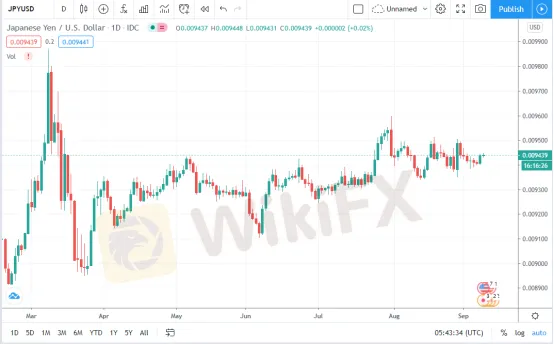Strong Yen against Hamstrung Yoshihide Suga
Japan's
Liberal Democratic Party (LDP) will elect a new leader to succeed the
resigned Shinzo Abe as the next Prime Minister on September 14. This
election, therefore, will be determined by the LDP factions rather than
the country's public opinion. While Chief Cabinet Secretary Yoshihide
Suga has taken a lead in the LDP's leadership race, he stressed to carry
“Abenomics” forward with no novelty in his political platform.To get
more news about WikiFX, you can visit wikifx official website.
In
fact, the mess in the country's economy cannot be cleared up whatever
Suga's politics are. Not only is Japan's economy the worst among the
major industrial nations, but the government's debt-to-GDP ratio is the
world's largest, which is even more than Greece and Italy that are known
to be in debt crisis.

Consequently,
I hold a gloomy view that the Japanese equities may be too high to keep
the upside as Suga is not capable to guide the country out of its
slump. The Nikkei 225 index has regained 7,142 points (43.60%) to 23,500
from a March low of 16,358 and is approaching to the triple top that
was formed earlier, with the largest resistance lying in the 24,448.5 of
September 2018, which is also the high level of October 1991. This
index is expected to retreat after seeing little chance of breaking
through the triple top.
A decline in Japanese stocks will trigger
the unwinding of carry trade in the currency, driving a rise in risk
aversion and strengthening the yen. At this stage, the weak U.S. dollar
leaves limited space for the yen to drop sharply, with the biggest upper
resistance against the yen between 107.04 and 108.16. On the contrary,
if the Nikkei does fail to hit the top and fall steeply in the future,
USD/JPY will have a chance to challenge the 104.19 low of July 31, where
a breach below will see the yen showing its power. In addition to the
election of the LDP's leader, investors should also pay attention to the
central bank's interest rate meeting on September 17, noticing whether
the monetary policy will change after the new Prime Minister takes
office.
Strong Yen against Hamstrung Yoshihide Suga | Forum
xysoom
Sep 18 '20
Share:
